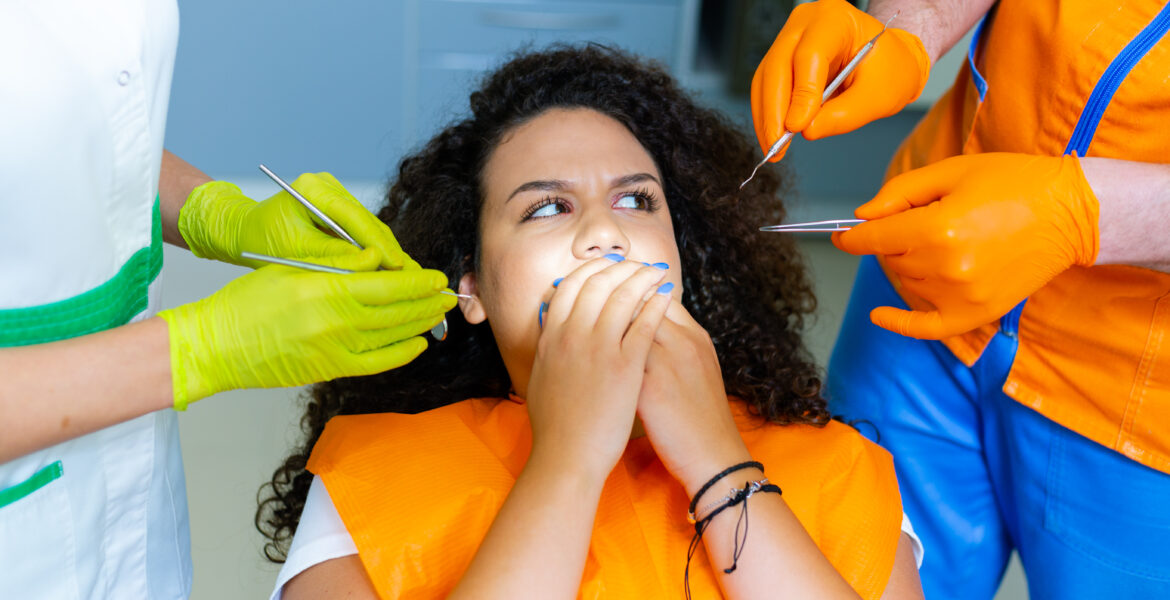Fearing going to the dentist is not unusual. Many people avoid going to see the dentist. It is not uncommon for people to put off cleanings or dental work due to anxiety. Dentophobia is a more serious condition than anxiety. It is also known as Odontophobia. The condition is an extreme and irrational fear of dentists and dental procedures.
Dentophobia and Dental Anxiety
Dentophobia is listed in the DSM-IV as a type of phobia that leads patients to delay or cancel treatment. Dental anxiety and phobia triggers vary from person to person based on a previous traumatic experience or a fear of needles. Delaying dental treatment due to this extreme fear can lead to bad dental health. When someone has dental anxiety, the fear isn’t extreme. They still may postpone treatment due to worry and stress but are more likely to see a dentist.
Causes and Symptoms
Some causes that can lead to dental phobia and anxiety include:
- The fear of pain. This can be born from a previous experience of intense or severe pain. For some patients, not receiving a high enough dose can cause them to experience pain once a dental procedure has begun. There have been scientific advances to help ease how much pain a patient experiences during treatment.
- Fear of needles. There are a lot of people who have an extreme fear of needles. When receiving dental care, it is not uncommon for a dentist to use a needle in the mouth of the patient.
- A fear of anesthetic. Some people experience unpleasant side effects of anesthesia. Knowing that they will have to deal with these side effects can increase a patient’s fear. Side effects include dizziness, nausea, and feeling faint.
- Fear of blood. For some people seeing blood causes them to feel panic even if there is only a minor presence.
- The fear of noise or noise overstimulation. For some people, the sounds the tools dentists and dental hygienists use can be scary and cause varying levels of anxiety and panic. For others, the loudness and amount of noise can be overstimulating, which is overwhelming.
Symptoms include:
- Dizziness
- Shortness of breath
- Nausea
- Crying
- Heart palpitations
- Trembling and shaking
- Indigestion
- Insomnia
How to Manage Dentophobia and Dental Anxiety
Taking care of your teeth is vital to your health. Dental issues can affect your health in ways you might not be aware of. Dental health may affect the heart because of bacteria from plaque. It can block arteries, causing heart attacks or stroke. Bacteria can also enter your lungs and affect your respiratory health. Additional concerns include cancers of the mouth and periodontitis, which is linked to diabetes.
Dental Complications:
- Decayed teeth
- Gum disease
- Missing teeth
Because dental health is so essential, it is necessary to find ways to manage Dentophobia and anxiety:
- Cognitive Behavioral Therapy
- Acupuncture
- Meditation
- Guided imagery
- Relaxation techniques
- Sedation
- Talk to your dentist to agree on a treatment plan that includes breaks or other accommodations.
- Medication







